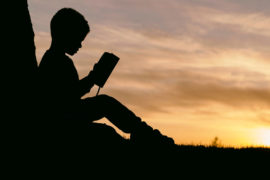What’s the future of social entrepreneurship?
My answer is pretty simple: I believe the future of social entrepreneurship is in B Corporations.
Here’s what I mean.
The rise of B Corporations
Millennials make up the bulk of the workforce today (I happen to be one of them). This generation is notorious for having a social good mindset, which inevitably spills over to their professional careers and drives their decision making when it comes to the companies they join or start.
As more millennials take the path of entrepreneurship, I believe we’ll start seeing more companies (new and established) transform into social enterprises with the B Corporation structure. In other words, companies that go beyond creating value for their shareholders and uphold certain standards of social and environmental performance, accountability, and transparency.
We’ve already seen well established companies such as as Etsy, Patagonia, Kickstarter, and Warby Parker transform into B Corporations.
Simply put: a B Corporation is the best of both worlds. It enables individuals to start for-profit businesses that go beyond dollars and cents. Instead, it enables them to do two things simultaneously: build value for all stakeholders and contribute to the greater good of the world.
Etsy, for example, upholds their end of the bargain by giving workers paid time off to volunteer, paying employees well above the local living wage, and composting its office food waste.
Warby Parker has a “buy a pair, give a pair” structure where they make a monthly donation to nonprofit partners after tallying up the total number of glasses sold. The nonprofits they partner with train men and women in developing countries to give basic eye exams, and also sell affordable glasses in their communities.
I believe as time goes on, the lines between for-profit and nonprofit will blur. Companies will start getting more creative with their business models and come up with new ways to make an impact.
Final thoughts
The first B Corporation was certified in 2007. Since then, 2,177 companies (and counting) have joined the movement to date according to B Lap, the nonprofit that verifies social enterprises and grants B Corporation status.
I predict, in the near future, more businesses – especially ones that have millennial founders – will start recognizing the benefits of being a B Corporation and what it means in today’s society both from a growth and impact perspective.




